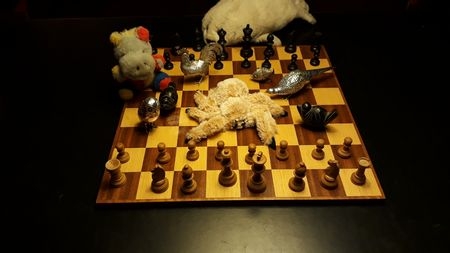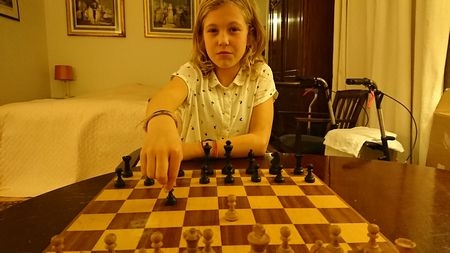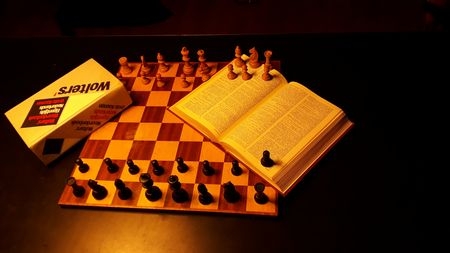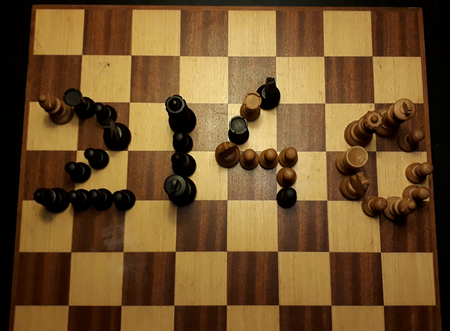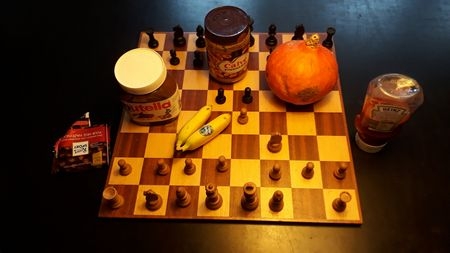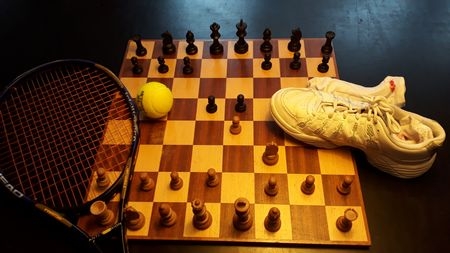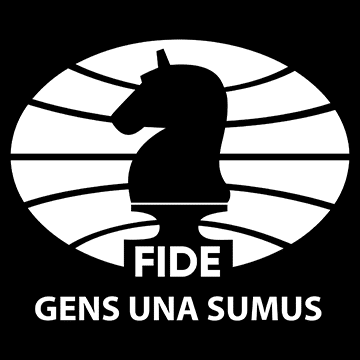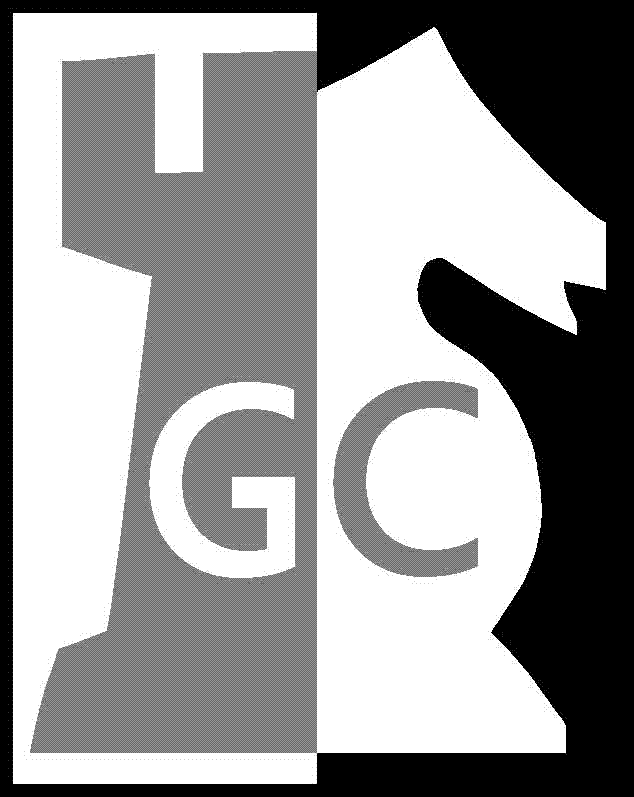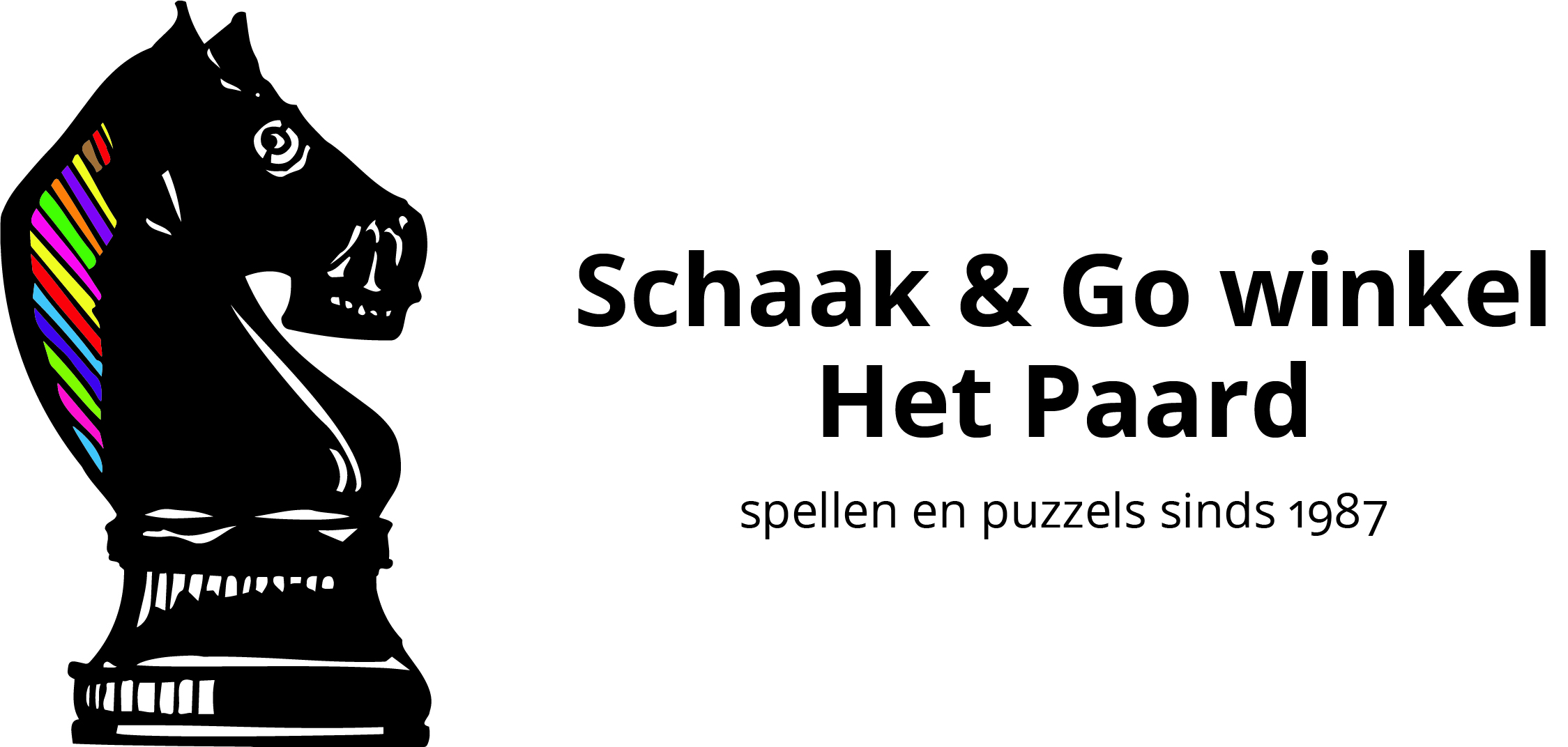December is always a bit of a strange month. Vague nostalgic feelings get drowned in alcohol and the empty feeling in our stomachs is filled by turkey and venison. In the meantime we come together with those we normally trying to avoid as much as possible; our dear family. A month of contradictions so to say, and that was certainly the case in the world of chess this December. During the London Chess Classics the crème de la crème of human chess played one draw after the other, while somewhere on the internet or in the cloud new kid on the block AlphaZero crushed Stockfish, the best chess computer known to man (and to computers), until now.
As boring as the human games were, so exciting were the pieces of art AlphaZero produced. Magnus Carlsen proved to be human after all by playing his worst game in years (against Ian Nepomniachtchi). At the same time AlphaZero was called an ‘alien’. Other commentators thought Alpha (I can call him Alpha) on the other hand produced very humanlike chess, which proves that nobody exactly knew what was going on. One thing was clear: this was something else.
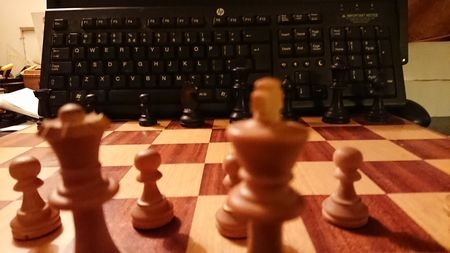
OK, let’s get the facts straight for a moment. AlphaZero played 100 games against Stockfish, losing zero, drawing 72, and winning 28. The best 10 games were released by Google, owner of DeepMind, developer of AlphaZero. Alpha just knew the rules, then practiced a bit against himself, and 24 hours later, he crushed poor Stockfish. The main difference between the two: Alpha calculates 80.000 positions per second, Stockfish 70 million. Artificial Intelligence against computer programmers, evaluation versus deep calculations and subtlety prevailed over brute force.
My first reaction: why do we humans even play chess anymore? Why don’t we quit with the self-torture and the stress? Why don’t we just organise computer chess tournaments only? Let them do the hard work, while we sit on the couch with a bag of chips and watch a nice selection of games played by technology. People can still commentate on the games for some explanation, so Maurice Ashley wouldn’t even become unemployed. We could get rid of the dispirited interviews by those so-called super grandmasters who recycle computer lines and come up with vague excuses for their quick draws. On top of that, computers are not complaining about money or conditions (The latter by the way is not totally true. I recall that during the last computer chess tournament Stockfish demanded 77 bags of blue M&M’s. And Rybka’s hotel bill was extremely high because of endless orders of caviar, vodka and champagne. He finally left the room in a state as if Motörhead had spent the whole summer there).
The first chess engine was the Turk, a construction by the Hungarian inventor Wolfgang von Kempelen in 1770. He made a machine with a chess doll on the outside and a small human chess player on the inside, presumably Johann Baptist Allgaier. The Turk went on tour in Europe and the U.S. till the machine burned down in 1854. Edgar Allan Poe was also fascinated by the Turk and wrote an essay in which he thought he revealed the secret. The Turk was a computer with a human inside, the exact contrary of what see these days, a human chess player with a computer inside. But that’s a whole different subject.
In the Seventies computer programmers became fascinated with the 64 squares and its possibilities. Around the year 1980 the first home chess computer Fidelity Chess Challenger Voice entered the market. It was a white plastic thing with a rating of 1100, who couldn’t castle or make a minor-promotion, let alone move en passant. A few decades later, in 1997, Deep Blue beat world champion Kasparov. IBM saw his stock rise and Kasparov saw his bank account rise. Afterwards the Russian dramatically claimed he did everything to try to defend the human race.
After Kasparov’s intentional or unintentional loss, chess computers became stronger and stronger. Stockfish has reached a rating of around 3400. I thought by now we would have reached the limit of the strength of chess computers. Of course, computers are much stronger than the best humans, but with strong play some top grandmasters can make a draw once in a while, and even occasionally win, I thought. (On YouTube there’s a video where Nakamura keeps a fairly easy draw against Rybka in a Kings Indian.) Could computers really get even stronger?
AlphaZero gave us a convincing answer to that question. Let’s presume that Alpha really taught himself to play brilliant chess in this short period of time. (And why shouldn’t we believe a company that’s trying to make as much money as possible by collecting and selling of human data – our most private thoughts and actions – and disguises itself with some sweet colours in its logo?) AlphaZero is so good at chess, because it calculates less possibilities than its predecessors. The developers call this ‘the human approach’. If one takes a good look at the ten games that were released (why were the other games not released?) one has to confess it is kind of humanlike. Alpha often sacrifices a pawn in the opening for some long term compensation, but as opposed to humans, most of the times he finishes off his games in great style.
AlphaZero taught himself to play chess in just a few hours, Google claims. A nice catchphrase, but is this really the truth and the whole truth and nothing but the truth? Not totally of course, because the development of the hardware and software must have taken at least a couple of years. Then the question arises – without trying to be too philosophical – if one teaches something or somebody to learn something, when does the real learning start?
Telling young children the universe is endless is a bit dangerous. Lack of comprehension can make them panic. I feel like a child who’s just been told the universe is endless and expanding. The technique behind AlphaZero is abracadabra to me, simply an endless stream of incomprehensible technology. If I understand correctly Alpha can learn the most brilliant game ever invented by human kind in perfection within a few hours. What happens when he develops other interests? What if Alpha starts trying to learn the ins and outs of atomic bombs, the fine art of starting dictatorial regimes, or the endless production of heavy metal music?
Carlsen’s bad play in London was said to be due to illness, tiredness, or lack of form. My explanation is the following: just before the tournament he took a peak at the games of AlphaZero. Stockfish cried itself to sleep and Carlsen also must have felt smaller than ever, knowing that this level even to him seem unreachable. He knows AlphaZero is not only the end of human chess, but it’s the end of the world as we know it.
Benno de Jongh
Benno de Jongh writes daily columns during the Chess Festival, published around 3 pm on playing days. De Jongh is a journalist and a chess player, who has never reached the rating of 2000, and probably never will. Despite that fact he is one of the worlds leading experts on the Elephant Gambit and working on a book on the subject, (working title: The Elephant Gambit, A Rare Black Beast with a Proboscis on the Board, publication expected in 2032). De Jongh’s opinions on several chess- and non-chess-related items do not in any way reflect the policy of the organisation of the festival.


